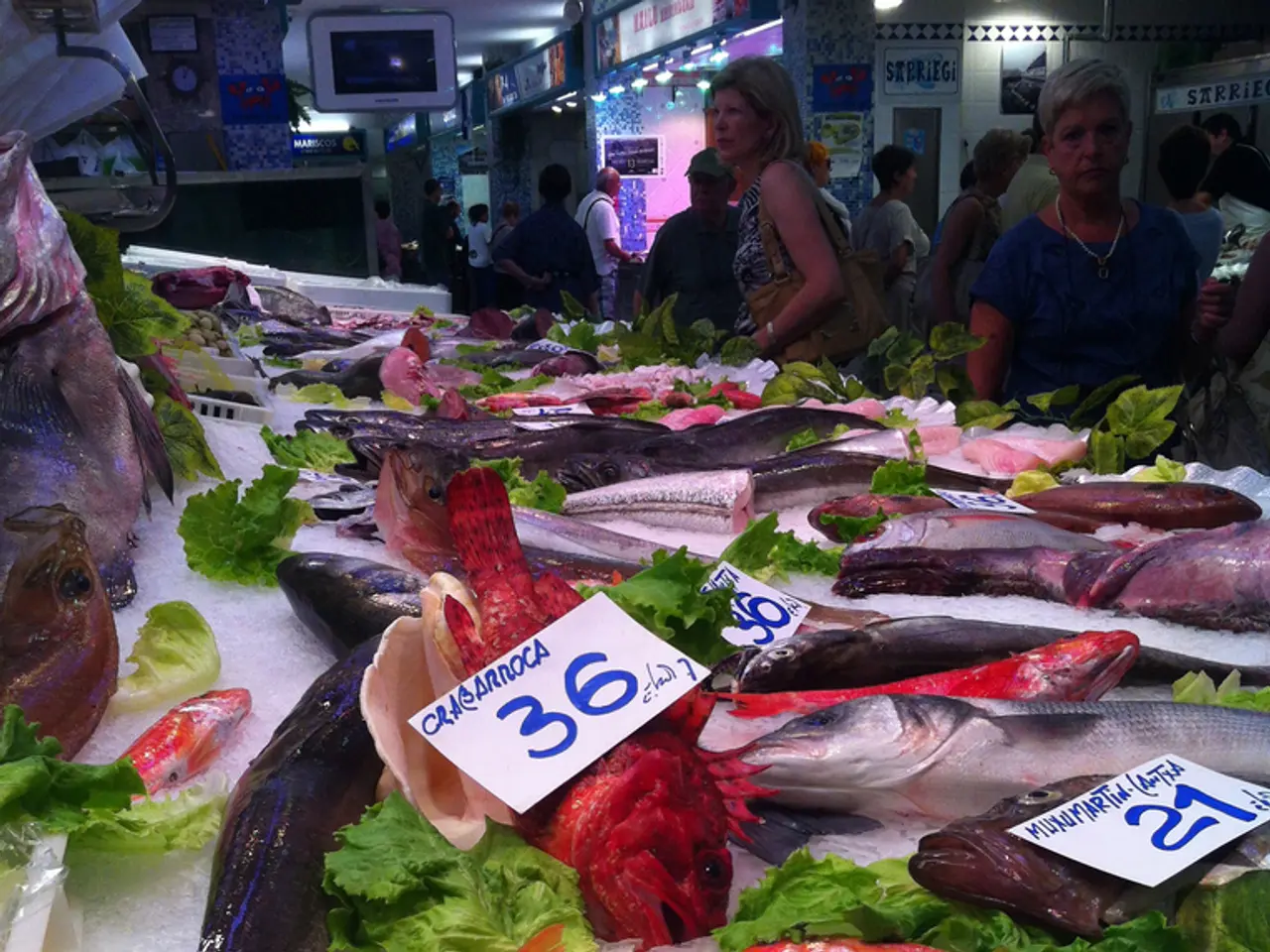Sustainability of fish doesn't stop at the packaged product label
In the realm of fish and seafood consumption, the importance of scientific data cannot be overstated. This data is crucial for assessing fish stocks, providing a foundation for informed decisions about sustainability and conservation.
The European legislator is acknowledging this need, with a new directive set to take effect from September 2026. This directive aims to address consumers' desire for easily understandable yet fact-based environmental claims.
The assessment of fish stock sustainability is a complex process that requires a wide range of data. Professionals can gain a comprehensive overview of the available origins on the raw material market. This data is then summarized in time series and evaluated by scientists in the context of other influences, such as climate change and the ecological state of a water body.
Key scientific methods include stock assessment models, biological reference points, indicators of abundance and exploitation, and length-based assessments. Stock assessment models, for instance, estimate fish population biomass, recruitment, fishing mortality, and biomass targets. These assessments determine whether fishing pressure is sustainable, if stocks are overfished, or if they show signs of recovery.
One organisation leading the way in this field is the International Seafood Sustainability Foundation (ISSF), which assesses tuna stocks using the Marine Stewardship Council's (MSC) Fisheries Standard. The 2025 ISSF report found that 12 of 23 major tuna stocks globally currently meet the benchmark, indicating healthy stock status without overfishing.
Global assessments by organisations like the UN's FAO also emphasise the importance of science-based fisheries management in the recovery of depleted fish populations.
However, it's important to note that the sustainability seal on fish and seafood products in the German market does not fully represent the complexity of the sustainability assessment system. Consumers can find more detailed information about fish stocks, including the exact scientific name, fishing area, and stock details, in online fish stock databases.
Manufacturers and retailers use these databases to align their raw material purchases and product formulations sustainably. A database for sound information on fish stocks, called "Fish stocks online," offers current assessments of the stock situation for various fish species in different fishing areas.
The Fisch-Informationszentrum e.V. (FIZ) and the Thuenen Institute for Baltic Sea Fisheries explain the complexity of the scientific basis for the sustainability assessment of fish and seafood. The Thuenen Institute maintains the scientifically-based national information portal "Fish stocks online" (www.fischbestaende-online.de).
Julia Steinberg-Boethig from the Fish Information Centre emphasises that the complexity of sustainability assessment in fishery products should not be overlooked. Many factors play a role in this assessment, including fishing method, origin, stock situation, and management.
The German fishing industry supports this EU plan, which requires manufacturers to substantiate environmental claims with scientific evidence and for sustainability labels to meet quality criteria. This approach ensures that consumers can make informed choices about the fish and seafood they consume, contributing to the overall sustainability of our oceans.
- In the context of the EU's new directive, science plays a pivotal role in the assessment of fish stock sustainability, with methods such as stock assessment models, biological reference points, and length-based assessments being key to providing accurate data.
- As Julia Steinberg-Boethig from the Fish Information Centre notes, the sustainability of fish and seafood products relies heavily on technology-driven, scientific databases like "Fish stocks online," which offer detailed information about fish stocks, including their exact scientific names, fishing areas, and stock details.




